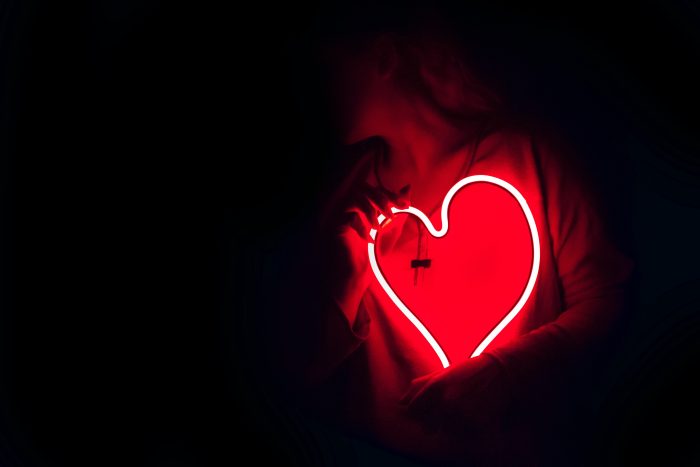Even if a break-up wasn’t our choice, we still have a choice about how we frame the loss.
When I was 19 my boyfriend, Norman, left to return to the U.K., taking my virginity and my heart with him. I thought I would die from the hurt if the crying didn’t fatally dehydrate me.
Since then, I’ve survived several further humiliating, ego-demolishing, soul-splintering break-ups.
Like death, break-ups don’t seem to get easier with repetition. There’s no anesthetized way to love someone so that come Game Over, you’ll get that pleasantly numb sensation like you do in a dentist’s chair. Brene Brown’s research on vulnerability shows that to live whole-heartedly is to risk being raw.
If we try to insure ourselves against pain, we only hold back the joy.
Love is the ultimate risky business.
Break-ups thrust us into the empire of grief where we have to mourn the death of our togetherness, perhaps the family we created, or simply the hopes and dreams of a happy-ever-after. There may be financial losses. Removalists. Down-sizing. Lawyers may be involved—shudder.
It can be messy, stricken.
So we’ve got to do our crying—it’s the soul’s enema—before we can put ourselves out there again. We may even have to go through the extended Kubler-Ross cycle of denial, anger, bargaining, depression and acceptance.
All this takes time.
However, there comes a point where the borders of grief blur into the marshlands of self-pity. This is treacherous real-estate. If we ever want to date again, we do not want to set up home here.
So how do we avoid getting stuck in this dead-end location?
First: We have to relinquish our victimhood.
If someone’s done the dirty on us—had an affair, left us for a younger lover, screwed us over financially—we’re going to feel hard-done by. We need to keep tabs on just how much energy we’re investing in the “How could he/she? What a bitch/bastard/ratbag!” routine. “Self-pity,” as the author Tim Parks writes in Teach Us to Sit Still, “is a great teller of boring tales.”
“Poor Me” comes with a complete uniform which includes self-administered handcuffs and chains.
Secondly: We can accept responsibility for the part we played in the relationship that led to the crash.
The other person may be responsible for the grisly behaviour—that’s not a dynamic. How we responded to it, or co-created a situation in which unhappy scenarios played themselves out is.
Our job is to figure out what part we played in that toxic dynamic. Could we have had firmer boundaries or communicated more clearly what wasn’t working for us? Did we turn a blind eye or make excuses for our partners? If we put up with noxious stuff then, hell, why did we? Sometimes in a couple one person embodies the shadow energy, while the other cradles the virtuous energy. This is only a partial understanding of what’s really going on. The truth between two people is never simple. It is always a rich tapestry of silences, betrayals, sadness and failures to hold on to one another.
Being an adult, is about recognizing the complexity of who we are, in relationship with someone else and being prepared to say, “I also made mistakes.”
To truly recover our self-esteem and move forward, we have to own our part in what went wrong and equally not take responsibility for what was not our fault. Accepting responsibility doesn’t weaken us, it empowers us. Our relationship failures, are—despite their wounding disguise—opportunities to look within.
Self-insight is the muscle of self-esteem.
We can work it into a six-pack. We can choose to cling to blame like a life-raft. But no-one’s coming to rescue us out there; to swim back to shore, we have to let it go.
This may be the perfect time to get some help to look back at our histories—our family of origin where we learned our love-patterns—and figure out just how we love and how we can love, ourselves and others, better.
Break-ups can break us. But what will be broken? Only our illusions that our lives or our relationships were perfect. The poet and cancer survivor Mark Nepo, says that crises can either break us or break us open, forcing a collision with truths we’ve been avoiding through denial and repression.
The pain makes the break-up feel like a terrible ordeal, but it’s also a new beginning and offers us a chance to heal.
1. Grieve: do it properly.
2. Forgive: ourselves as well as the bitch/bastard who hurt us.
3. Take responsibility: being a grown-up is owning our own stuff, and recognizing how we might have done things differently.
4. Begin again. Get out there. Try again, wiser and cleansed for having lost.
Love elephant and want to go steady?
Sign up for our (curated) daily and weekly newsletters!
Assistant Editor: Alicia Wozniak/Editor: Rachel Nussbaum











Read 1 comment and reply